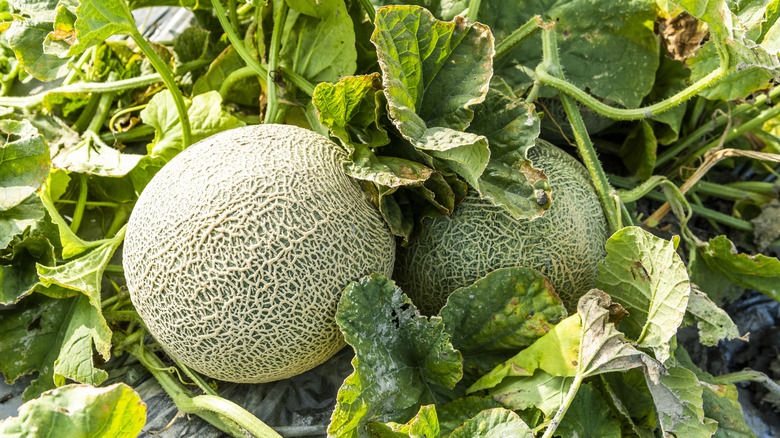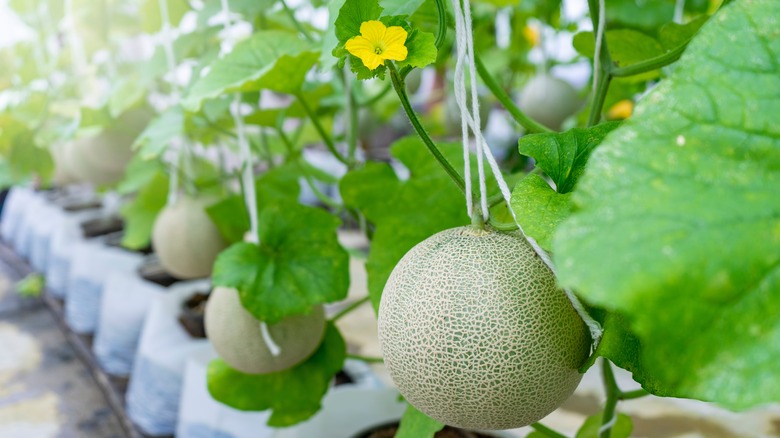What Happens When You Overwater Cantaloupe Plants
The best cantaloupes are sweet and juicy when ripe. If you're growing cantaloupes in your garden, but you're not having much luck in achieving sweet and juicy fruity flesh from your crop, it could be because you're overwatering your cantaloupe plants. Canaloupes are a desert crop that grows in the southern desert valley. As a desert crop, if you overwater them the result will be fruit is that is bland, and without the sweetness you're aiming for. Think of it like diluting juice — too much water and all you're going to taste is water.
In South Asia where cantaloupe originates from, the rainfall is seasonal but heavy, and the plant thrives when it gets about an inch of rainfall per week. While it's true that up until the fruit starts to grow, cantaloupe plants do need plenty of water, overwatering in general will lead to problems, such as causing damage to the root system by suffocating it. If the soil around the roots of your plant becomes waterlogged, they can develop root rot very quickly, leading to the death of your plant. At the same time, you don't want to underwater your cantaloupe plant because it will dry out. If the plant's roots get too dry they won't be able to absorb the nutrients they need from the soil.
How to water your cantaloupe plant
Cantaloupe plants that have well-draining soil will need to be watered around once a week. Don't be afraid to absolutely flood them with about 2-3 inches of water, and then leave them alone and don't water them at all for about 1 or 2 weeks depending on the season and how warm it is — the higher the temperature the higher the frequency of watering will need to be — alternatively, you may have to provide shelter for your plants if there is too much rain. Then stop watering altogether about 2 weeks before you're ready to harvest your cantaloupe. You can look out for when the flowers start to turn into melons. If you water during this time the resulting fruit will taste bland.
Well-draining soil and pots with adequate drainage are essential, because even a small amount of water can lead to overwatering if it has nowhere to go. So check that the soil isn't too compacted around the plant and that the drainage holes in your pots are sufficient. You'll know if you're overwatering your cantaloupe plant because it will cry out with symptoms, the main one will be yellowing leaves. If you notice this, cut back on watering to allow soil to dry out, and check that the water drainage is effective ready for when you next water the plant.

